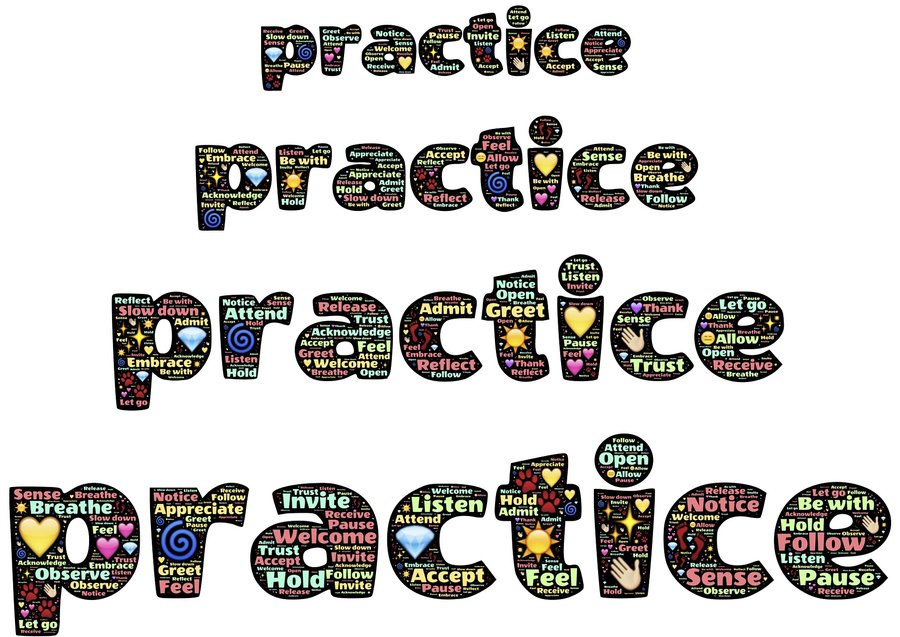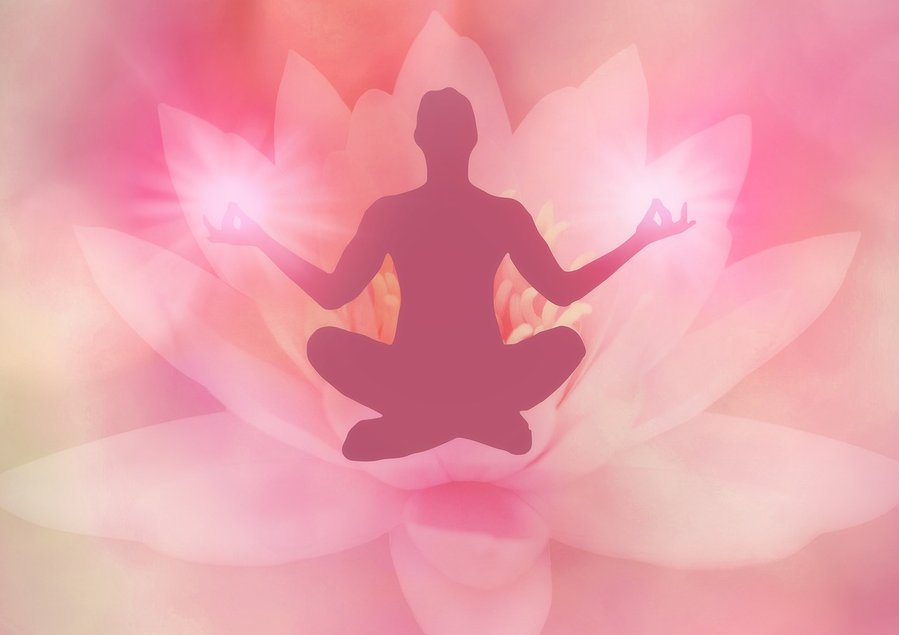We all know self-awareness is the foundation of personal growth and development. It allows us to understand our thoughts, emotions, and behaviors in a way that promotes positive change.
By developing self-awareness, you can gain clarity on your values, beliefs, strengths, and weaknesses, which in turn can help you make better decisions, set goals, and create a more fulfilling life.
Without self-awareness, you might not even realize what needs to change, or worse, you might inaccurately assume that you’re doing everything right. It can be challenging to recognize self-limiting beliefs, patterns of behavior, and negative emotions that may be holding you back.
By increasing your self-awareness, you can identify and address these barriers and take steps towards personal growth.
Being self-aware is very important, and yet, so many of us have trouble carving out the time to make it a regular practice. We’re constantly busy in our lives – working or parenting or both! – that making space for true self-discovery can become an afterthought.
That doesn’t have to be the case though: you can start incorporating small, manageable amounts of introspection into your daily routine right now.
In this blog post, I’m sharing 3 simple tips to begin making self-awareness part of your life today! Trust me, taking the time to really get to know yourself is an investment in your future happiness and success.
3 Simple Tips for Daily Practice
Here are some simple self-awareness tips you can practice every day to stay connected to your inner thoughts and feelings.
Tip 1. Create Healthy Habits
There are four simple habits you can develop that will make a huge impact on your self-awareness, which are observing your thoughts, recognizing your emotions, staying grounded in the present moment (or mindfulness), and spending time in nature. Let’s dive into each one, shall we?
- Observe Your Thoughts Observing your thoughts is an essential part of developing self-awareness. When you take a step back and observe your thoughts, you gain a better understanding of how they shape your feelings and behavior. By paying attention to the voice in your head and observing any patterns, you can begin to identify the thought patterns that may be limiting your personal growth and development. Please note that observing your thoughts does not mean suppressing them or ignoring them. Instead, it means acknowledging them, understanding their impact on your emotions and behavior, and taking steps to address any negative thought patterns that may be holding you back.
- Recognize Your Emotions By paying attention to how you feel throughout the day, you can gain valuable insight into your emotional state and identify any triggers that may be causing stress or other negative feelings. This self-awareness can help you to better navigate difficult situations, respond to stress more effectively, and improve your overall well-being. Take a few moments throughout the day to pause and tune in to how you are feeling. Notice any physical sensations in your body, such as tension or tightness, and identify the emotions that may be driving these sensations. This can help you to become more aware of your emotional state and develop greater emotional intelligence. It’s important to remember that all emotions are valid and part of the human experience. By recognizing and acknowledging your emotions, you can permit yourself to feel what you feel without judgment or criticism. This can help you to respond to your emotions more constructively, rather than trying to suppress or ignore them.
- Practice Mindfulness By practicing mindfulness you can develop a greater sense of self-awareness by staying present in the moment. By being fully engaged in the present moment, you can avoid getting lost in worry or regret about the past or future, which can distract you from the present. In his book “The Power of Now”, Eckhart Tolle emphasizes the importance of staying present in the moment because he believes that our minds often become stuck in the past or future, causing unnecessary stress and anxiety. He argues that when we are fully present in the moment, we can experience a sense of peace and clarity that is often absent from our daily lives. Tolle also suggests paying attention to the physical sensations in your body as a way of staying present. By noticing the sensations of your breath, the temperature of the air, or the feeling of your feet on the ground, you can anchor yourself in the present moment and cultivate a sense of groundedness and calm.
- Spend Time In Nature Spending time in nature is a great way to reconnect with your inner self and increase your self-awareness. Nature has a calming effect on the mind and body and can help reduce stress and anxiety. Whether it’s taking a hike in the mountains, walking along a beach, or simply sitting in a park, spending time in nature provides an opportunity to disconnect from the demands of daily life and focus on the present moment. Moreover, spending time in nature can help you develop a greater sense of gratitude and appreciation for the world around you. As you take in the sights and sounds of nature, you may begin to feel a sense of wonder and awe at the beauty of the natural world. This can lead to a greater sense of connection to something greater than yourself and can help put your problems and challenges in perspective. In addition, spending time in nature can be a great way to get exercise and improve your overall physical health. Whether you’re hiking, biking, or simply taking a walk, being outside and moving your body can help you feel more energized and focused. So, make it a priority to spend time in nature as often as you can, and take advantage of the many benefits it has to offer.

Tip 2. Ask yourself difficult questions
Asking yourself difficult questions is an essential aspect of self-awareness, as it allows you to explore your motivations and feelings on a deeper level. This can help you gain insight into why you behave in certain ways or make particular choices.
The questions that challenge your assumptions, beliefs, and values can be hard to answer, but they’re the ones that can unlock deeper insights into who you are and what you really want out of life.
For example, why do you react a certain way when you’re angry? What are your biggest fears and how do they hold you back?
By examining these underlying beliefs, you can identify patterns that may be holding you back and make changes to improve your life.
Furthermore, we should also challenge ourselves. It’s all too easy to settle into our comfort zones and go through the motions of our daily routines without much thought. However, challenging yourself can help you learn more about your strengths, weaknesses, and priorities.
So if you’re looking to foster personal growth and challenge yourself, one awesome way is to step outside of your comfort zone and set some challenging goals. Getting comfortable with discomfort takes practice, but as you achieve one goal after another, you’ll feel a sense of accomplishment that’ll propel you forward.
You could learn a new skill, take on an exciting new project at work, or explore a new hobby you’ve always been curious about.
When you challenge yourself, you build confidence in your abilities and develop resilience, which can help you navigate difficult situations with more ease.
Tip 3. Identify what makes you unique
Have you ever taken a moment to ask yourself, “What makes me unique?” It’s a question that can reveal a lot about you. We all have our quirks, talents, and experiences that shape who we are.
By identifying your strengths and weaknesses, you can develop a clearer understanding of your abilities and potential areas for growth. Take some time to reflect on what makes you stand out and what skills and talents you possess that can be honed and developed.
Along with your unique qualities, identifying your core values is paramount if you are looking to live your most authentic life. Your values influence your actions, guide your decision-making, and shape your behavior, so it’s important to choose ones that genuinely resonate with you.
When you understand what you truly value, you can make choices that align with those values.
Making a list of your values and prioritizing them can help you to gain clarity about what truly matters to you. This can provide a framework for making decisions that align with your values and can lead to a greater sense of purpose and fulfillment in your life.
As an extra suggestion or tip, be sure to surround yourself with positive influences. The people you spend time with can greatly impact your mindset and beliefs. Negative people can drain your energy and bring you down, while positive people can uplift and motivate you.
When looking for positive influences, seek out people who share similar values and interests, and choose friends who support and encourage you.
Remember that you don’t have to surround yourself with people who agree with everything you say or do. It’s healthy to have different perspectives and opinions. However, it’s important to be around people who respect your boundaries and support your personal growth.
In addition, be mindful of the media and content you consume. Choose books, movies, and social media accounts that inspire and motivate you. Avoid media that promotes negativity or unrealistic expectations.
By making conscious choices about the content you consume, you can further cultivate a positive and growth-oriented mental attitude.
With these easy tips and consistent practices, you’ll be well on your way to better self-awareness and a more peaceful state of mind.
Putting It All Together: Creating a Daily Self-Awareness Practice
Now it’s time to integrate the previous tips into your daily routine. Creating a daily self-awareness practice will help you stay on track and make progress towards your personal growth goals. Here are some ideas to help you get started:- Tip #1: These habits can be incorporated into your daily routine, without necessarily having to do them at a specific time. One example is to be mindful of your thoughts and emotions as you go about your day, by staying present in the moment. It’s natural for your mind to wander to the past or future, so it takes practice to bring yourself back to the present where you have the power to make decisions and choose how to think and feel. Just remember, it’s okay if your mind drifts off, the key is to gently bring it back to the present and continue your self-awareness practice throughout the day.
- Tip #2: This is all about recognizing your emotions and getting to the root of why you’re feeling a certain way. It’s normal to experience strong emotions, but it’s important to take a step back and ask yourself questions like “What triggered me?” or “Do I have any biases that are influencing my emotions?” The deeper you dig, the more self-awareness you’ll gain. When it comes to challenging yourself, this will look different for everyone. It could be something as simple as trying a new hobby or taking a different route to work. The key is to push yourself out of your comfort zone and do something that scares you a little bit. By doing this on a daily basis, you’ll start to build your self-confidence and self-reliance, which will make every day feel like a success.
- Tip #3: This one is all about identifying what makes you unique, your strengths and weaknesses, and your values. When you know these things, you can work on improving yourself and your life every day. By focusing on your strengths, you can become even better at what you’re already good at. And by addressing your weaknesses, you can turn them into strengths. Knowing your values will also give you the strength and motivation to move forward in your path and make decisions that align with your true self. So take the time to explore and understand yourself on a deeper level, and watch as your life improves in countless ways.

Example of a Daily Self-Awareness Routine:
By incorporating these practices into your daily routine, you will cultivate a greater sense of self-awareness, clarity, and purpose in your life.
- Start the day with a mindfulness meditation for 10-30 minutes. It can also be a guided meditation or a meditation with affirmations. Whichever works best for you.
- Take a few moments to feel grateful. Think about the new day, the people you’ll meet, and the chance to grow more self-aware. Search for something to be thankful for and let gratitude fill your heart.
- While driving to work, listen to an audiobook or podcast that inspires you.
- Throughout the day, practice recognizing triggering thoughts and labeling your emotions.
- Take a 20-minute walk outside during your lunch break.
- Identify one area in your life where you feel stuck and set a goal to address it.
- Take time before bed to reflect on your values and whether your actions throughout the day were in alignment with them.
- Take a moment before bed to reflect on the good things that happened today and feel grateful for them. It will help you relax and sleep better.
Conclusion
Self-awareness is a powerful tool that can greatly enhance your personal growth and development.
By practicing mindfulness, observing your thoughts, recognizing your emotions, spending time in nature, asking difficult questions, challenging yourself, identifying what makes you unique, and clarifying your values, you can deepen your self-awareness and create a more fulfilling life.
It takes time and effort to develop a daily practice, but the benefits are immeasurable. Remember, self-awareness is a journey, not a destination. So, keep practicing and enjoying the journey!


0 Comments